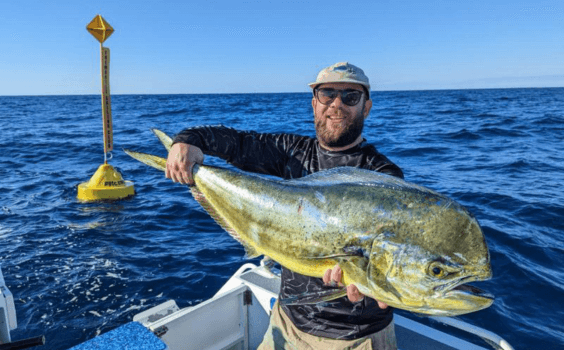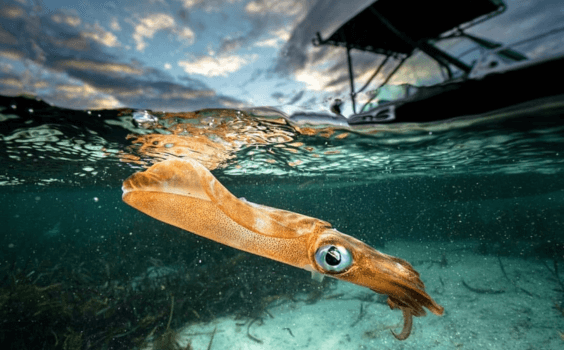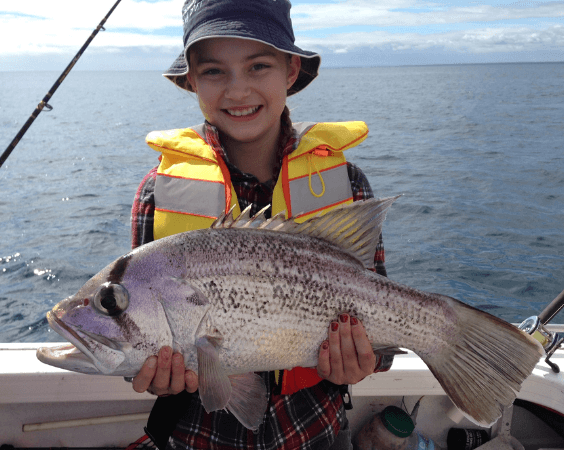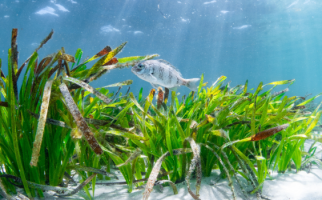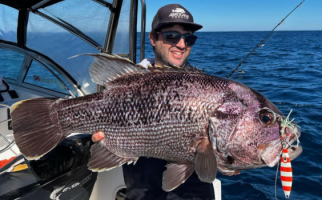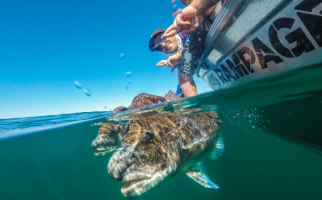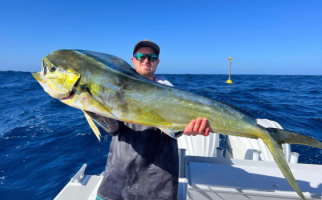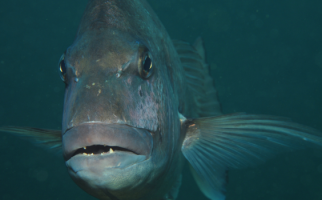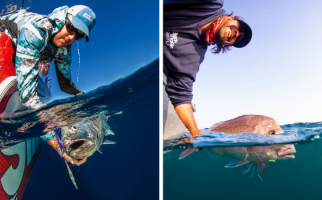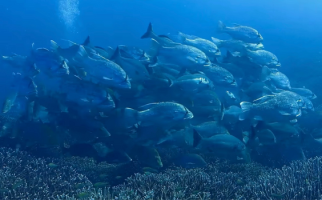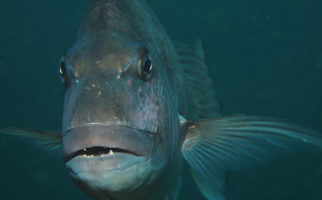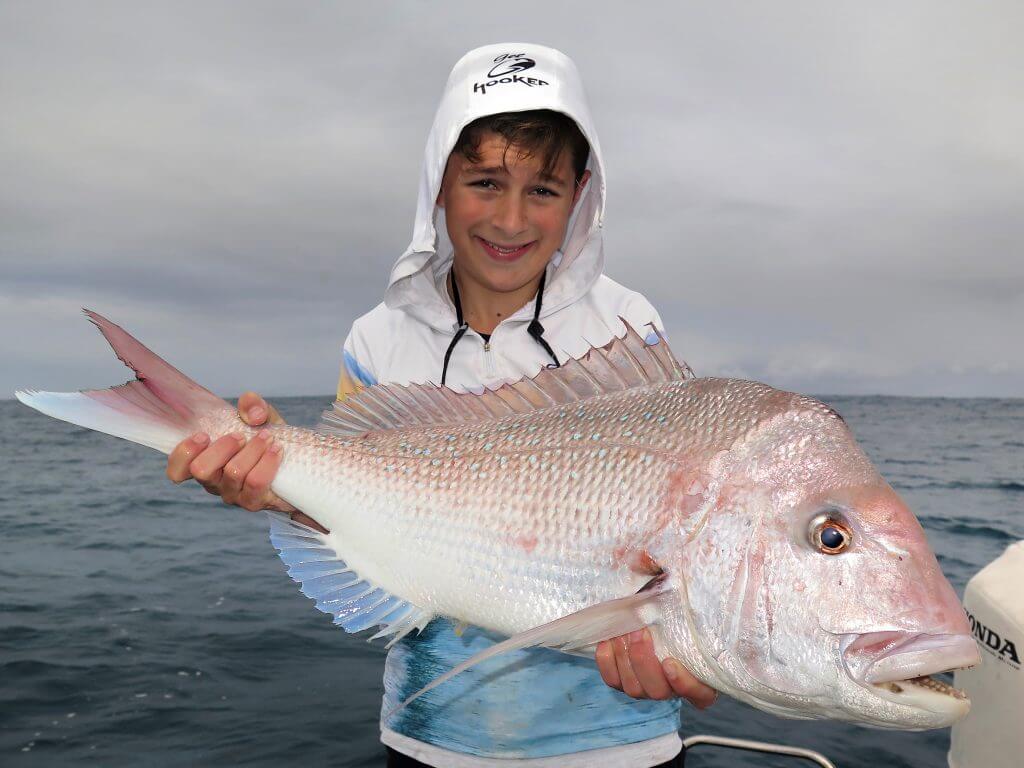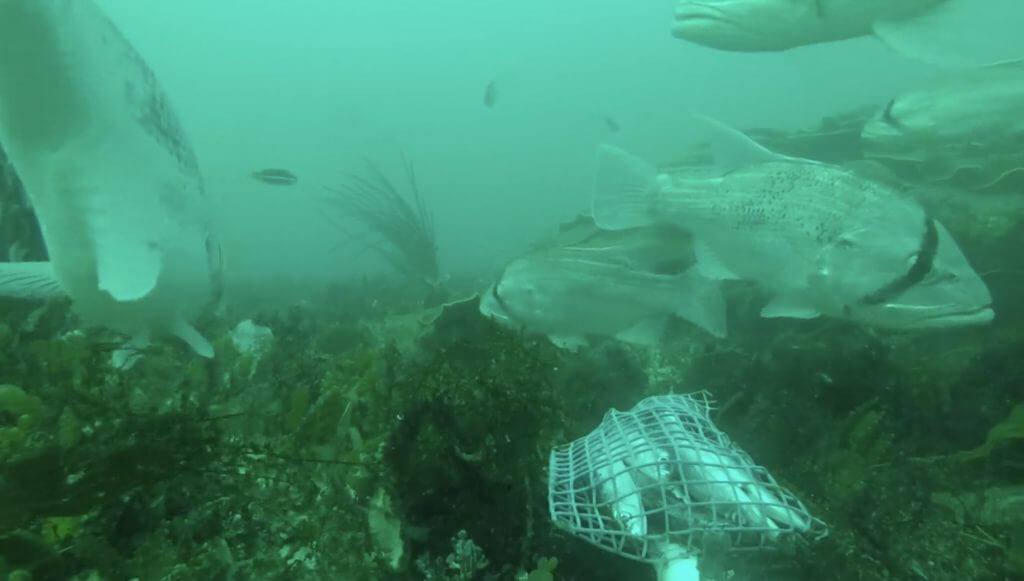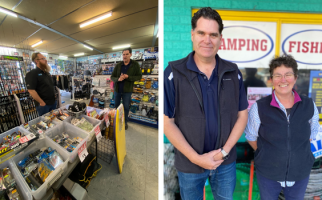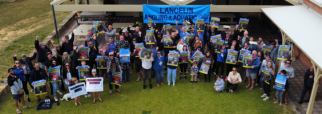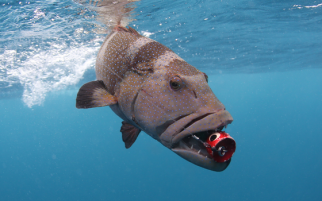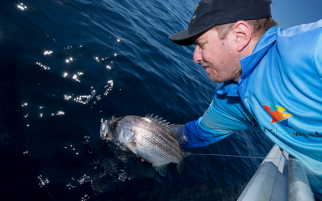Recfishwest got the chance to catch up with hundreds of mad keen recfishers on the weekend (15-17 September) at the Perth Boat Show.
Our stand at the heart of the show’s fishing section was a hive of activity across the three days – we had a steady flow of members from our passionate community wanting to get our take on all the hot fishing issues of the day.
Our kids’ lure colouring comp – run in partnership with Halco – proved to be as popular a draw as ever, with more than one hundred young fishos entering an array of the most colourful lure designs you’ll ever see.
The lucky winner judged by an expert Recfishwest panel will have their lure design made up into an exclusive Recfishwest lure and win a tour around Halco’s HQ in Freo, along with receiving 10 of their own design lures!
Dozens of boat show attendees also took advantage of our boat show special offer of joining up as a premium Recfishwest member at the show for just $10 and were given an exclusive past winning design of a Recfishwest/Halco lure.
It is great to have new members on board joining our cast of thousands and hundreds of you at the show came over to tell us you were already members and love the work we’re doing on behalf of the community. The overall support we received at the Show from attendees and other exhibitors was truly amazing and we are very grateful to be able to represent such a great community.
Hot topics
From marine parks, to plans for offshore windfarms, clarification on new lifejacket rules or the state of play for west coast demersals – an array of fishing topics came up at the boat show from fishers across a wide range of locations, ages and backgrounds – once again highlighting the diversity of the cast of thousands that is the WA fishing community.
Being able to hear your views and answer your questions helps us better advocate to fisheries decision-makers on your behalf to improve fishing experiences, access, safety and sustainability throughout WA. Here are some of the questions that came up and some of our answers:

1) When will the west coast demersal fishery be open and closed over the coming months?
Given there are numerous opening and closing periods for the west coast demersal season over the coming months along the West Coast Bioregion (Kalbarri down to Augusta), there is understandably some confusion surrounding when fishers have the green light to bottom fish off boats for demersal species.
Here is a rundown of the open and closed periods for demersal fishing in the West Coast Bioregion until winter, 2024.
- Demersal fishing is open during the school holidays from September 23 until midnight on October 8.
- It is then closed from October 9 until December 15 (inclusive).
- Open from December 16 until the end of January.
- Closed from February 1 until March 31.
- Open from April 1 until July 31.
Note, fishers can catch demersal species when beach or drone fishing off the land 24/7 and 365 days per year. From 1 August until 31 January, however, to protect pink snapper spawning aggregations, you are not allowed to fish for pink snapper either on the water or from shore within the mapped area in Cockburn or Warnbro Sound (pictured below).
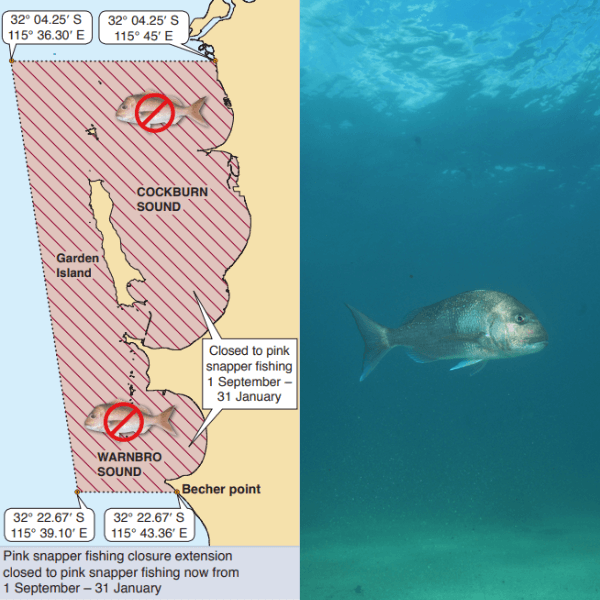
Recfishwest is keenly awaiting the outcome of the Voluntary Fisheries Adjustment Scheme (VFAS) later this year – which gives commercial fishers the opportunity to surrender their share of demersal catches for fair and reasonable compensation.
If there is a significant amount surrendered, it could create a more equitable sharing of the sustainable catch between recreational, charter and commercial fishing sectors allowing for more time out on the water for mums, dads, kids and mates fishing for iconic demersals.
2) What is happening with plans for Marmion Marine Park?
The boundaries of Marmion are planned to extend further north from Trigg up to Two Rocks. It will also stretch out west to some parts of the Three Mile Reef, nearly quadrupling the park in size with extensive no fishing sanctuary zones expected to be included. Plans for this extension of Marmion Marine Park could be released for public comment as early as October.
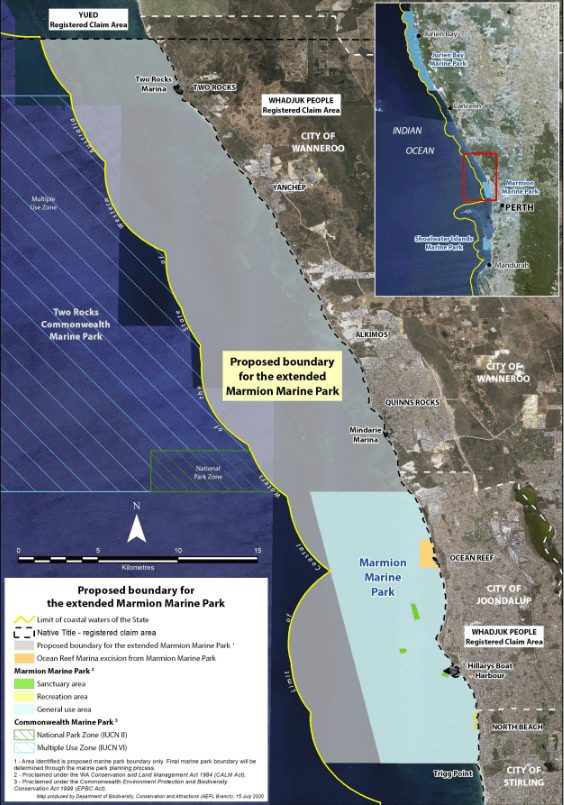
Recfishwest and the Perth metro community that enjoy wetting a line throughout this stretch of coastline share concerns about fishers being locked out of their favourite fishing beaches and spots out on the ocean throughout this area.
We urge everyone to have their say on areas important to them by making a submission to the Department of Biodiversity, Conservation and Attractions (DBCA) when the time comes, so check in on our social media channels for the latest and join Recfishwest’s Cast of Thousands to give us more power to represent WA’s 700,000 fishers.
Click here for more information on Marmion Marine Park and how you can get involved.
3) What is happening with the new south coast marine park?
The proposed south coast marine park will span more than 1,000 km of coastline, from east of Bremer Bay to the WA/SA border. It will likely include all beaches and coastal areas up to the high-water mark, save for a small radius around the Esperance townsite covered by Port waters. Plans for this new marine park could be released for public comment as early as October.
Proper consultation with the south coast community has gone off the rails and we heard widespread concerns firsthand from south coast residents at the boat show that their freedoms such as driving on the beach or bringing their dogs to their favourite fishing spots (which are already restricted on some beach stretches) could be threatened given the DBCA’s track record in park management.
Fishers care about the environment and we support the principle of marine parks – but they must balance conservation with fishing. Stopping thousands of mums, dads and kids from wetting a line in their favourite fishing spots would be an attack on our West Aussie fishing lifestyle. This will make it even more critical for south coast fishers to have their say when details of the proposed marine park are potentially released for public comment in the coming weeks.
Click here for more info on what is being planned within the south coast marine park.

4) What are the new rules on safety equipment changes in boats
We had numerous fishers approach us with questions about The Department of Transport’s new rules and regulations surrounding safety equipment on registered recreational vessels, personal watercraft (PWC), non-registrable yachts/sailing vessels and tenders.
The length of a vessel will no longer determine how far it can travel from the shore and new laws now require every person to carry a lifejacket while onboard a vessel anywhere in WA. If you’re out on the water in a vessel less than 4.8m long, you must by law now wear a lifejacket at all times. For those with kids aboard, if you’re more than 400 metres offshore in unprotected waters, kids aged between 1-12 years must wear a minimum level 100 life jacket.
Over the course of a five-year transition, emergency position indicating radio beacons (EPIRB), or personal locator beacons (PLB) will also need to be GPS enabled, along with a move to more reliable VHF and HF radios being required when more than four nautical miles offshore, with the phasing out of 27-MHz radios.
Recfishwest urges everyone to take responsibility for the safety of you and your passengers when out there on the water, because we want everyone to come home safely from a day’s fishing.

5) What are the plans for windfarms off the WA coast?
The area between Perth and Bunbury has been proposed for offshore wind projects (roughly 3-50km offshore and each turbine could be roughly 70-200 metres in height). A two-month long public consultation process begins in November where members of the community can have their say on this proposal.
The stretch between Perth and Bunbury is likely to be the most realistic scenario if a windfarm is to be developed off our coastline and no other areas in WA are likely to be considered any time soon.
Recfishwest will only support Offshore Wind Energy (OWE) projects that improve recreational fishing experiences with no net loss of amenity – meaning they need to co-exist with fishers with no loss of access. All offshore wind energy projects should also avoid important habitats such as spawning and nursery areas as well as popular fishing locations.
To read our views on offshore wind energy, click here.
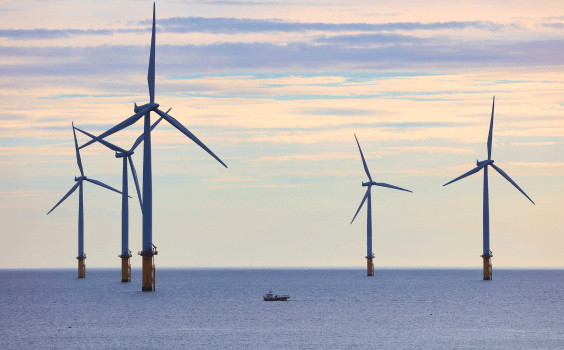
6) When will Fish Aggregating Devices (FADs) be deployed off the WA coastline?
Plenty of avid fishers who attended the Boat Show wanted to know when the southern-based FADs would once again make a splash given the great fishing opportunities they provide.
DPIRD are now coordinating and funding a full-time, State-wide FADs program in partnership with Recfishwest until 2026 and based on our discussions with DPIRD, FADs in Jurien Bay, Lancelin, Perth, Rockingham, Mandurah, Cape Naturaliste and Albany are expected to be deployed sometime around late October to early November of this year and be taken out before winter, 2024.
DPIRD are hoping to deploy the FADs as we transition into warmer temperatures when the pelagic species tend to fire up so the devices can start to accumulate these species to the months-long benefit of boat fishers – watch this space!
To stay up to date with all FAD deployment statuses and their exact coordinates across WA along with tips on how to fish them – make sure you visit our FADs webpage and keep an eye on the Recfishwest Instagram Page and Recfishwest Facebook Page for announcements of FAD deployments.
